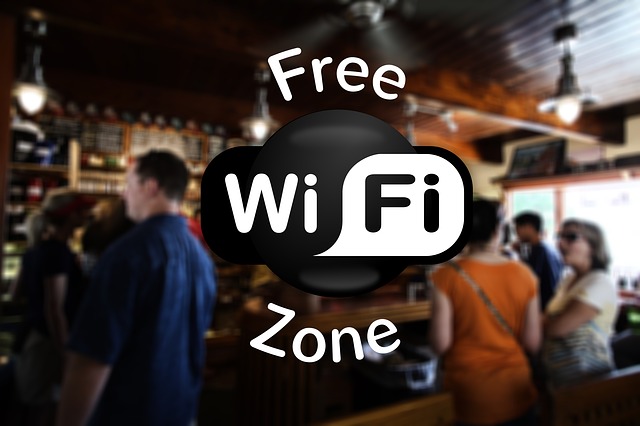Nowadays, it’s not too difficult for anyone to find public WiFi networks where they can connect their mobile devices for free. You can find these hotspots on public parks, schools, universities, cafes, restaurants, hotels, airports, and many other places. Some of the networks are secure, whereas many others are non-secured. A secured WiFi network means that the network can only be accessed if you know the password for that network, whereas the non-secured network means that it can be accessed without a password.
Since many public WiFi networks are non-secured, it means that anyone can have access to that network without having to put the password for it. The non-secured connection is also not encrypted, meaning that your data transmission might be monitored by the third parties, such as the WiFi network owner, the ISP, government, and even hackers. This is why it is always recommended for you to secure your connection using VPN whenever you use any public network, especially if it is non-secured. This is to mask your real IP address, so that you can browse safely and privately using that connection. Here are some tips to hide your IP address with VPN when using public WiFi networks:
1. Subscribe To A Premium VPN Service
This is the first thing that you need to do, since you cannot use the private connection without first subscribing to a premium VPN service that you prefer. Why should you use a premium service, while there are many free VPN services out there? That’s because the premium service offers you more security and privacy features, and they are more reliable in their overall performance. Free VPN services, on the other hand, tend to have weaker security and privacy protection, and they can easily be breached by a skilled hacker. So, it’s always worth the investment on your part to use a premium service instead of a free service.
2. Install The VPN App On Your Mobile Device
Once you’ve chosen your preferred premium VPN service and subscribed to their service, it’s the time for you to install the VPN app to your mobile device. Make sure that you are installing the app from the official link that is provided by the service provider. Once the installation process is complete, you can check whether the app is working properly or not. Also, you can learn about the app and familiarize yourself with the app user interface. Remember that this is the app that you will use very often, so you have to get to know about it.
3. Connect To The Public WiFi Network

Now, it’s time for you to test drive the VPN app for real. When you go to any public network, such as in a cafe or restaurant, you can start connecting your device to the WiFi network as usual. First, tap on the WiFi icon on your mobile device to see the available WiFi networks. Then, connect to the one that belongs to your current location, such as the cafe’s public network. Once you are connected, don’t do any browsing activity just yet. You have to open your VPN app before you start your online activity.
4. Open The VPN App
Before you start any browsing activity using the public WiFi, you have to open your VPN app first. Once the app is opened, you can start connecting to the VPN service by clicking the ‘Start’ or ‘Connect’ button. You will be required to write the username and password to your VPN account before you start connecting. Once that is done, you will be able to connect to the VPN service immediately. Once the VPN shows you the key icon in the notification area, it means that your connection is now private, and you are connected to the virtual server.
5. Start Browsing
You can now start browsing normally using your mobile device. You don’t need to worry because your connection is now encrypted. It means that you can safely connect to your bank account, do some financial transactions, and visit blocked websites using your connection. Nobody can monitor your online activity at this point. You can switch between different server locations via your VPN app in case you want to hide your IP address with the IP address of a particular country.
Those are the tips to hide your IP address with VPN when using public WiFi networks. Remember that it is highly recommended for you to connect to your private network every time you use a non-secured public WiFi. This is to ensure that your internet traffic is encrypted, and you can stay anonymous online by hiding your real IP address.
